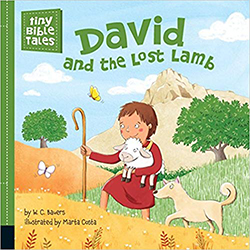When we started this 13-week series, “Participating in God’s Mission,” 12 weeks ago, we opened the very first lesson with the phrase “talking vs. doing.” It was a question to ask ourselves as we entered the series.
In that opening lesson, we explored what God’s mission means and asked ourselves, “Could it be that we talk more about God’s mission than we actually understand it? Could it be, too, that we talk more about it than we do much if anything about it? This series of studies has two purposes—to help offer greater understanding of God’s mission and in encouraging—even challenging—ourselves toward more action in participating in it.”
The mission of God may well be the single most important organizing theme of the Bible from Genesis to Revelation. The Bible thus is the story of what God is doing in our world. We have traced various aspects of the theme of God’s mission—what God is doing—and sought to understand and act on what this means for us.
The biblical texts selected for this three-month study have generally been called climactic texts. These climactic texts provided clear insight into the meaning of the mission of God, speaking powerfully to this theme.
Many have been positively worded, urging us to live a life of participation in God’s mission. The texts selected for this week’s lesson, however, carry a word of warning and judgment. Each speaks to the need for God’s people to practice social justice as we practice our faith and each speaks to the consequences of not looking after the interests of the poor, the weak or the alien among us.
Could our faith-inspired views of social justice, translated into our actions through ministering to people’s physical needs, be a definitive test of how we are participating in God’s mission? The definitive nature of these texts certainly might indicate that how we treat the weak is the litmus test that defines not only our participation with his mission, but—talk about climactic—our eternal relationship with him.
‘Love others like I have loved you’ (Deuteronomy 10:14-19)
“Although heaven and the heaven of heavens belong to the Lord your God, the earth with all that is in it, yet the Lord set his heart in love on your ancestors alone and chose you, their descendants after them, out of all the peoples, as it is today. Circumcise, then, the foreskin of your heart, and do not be stubborn any longer. For the Lord your God is God of gods and Lord of lords, the great God, mighty and awesome, who is not partial and takes no bribe, who executes justice for the orphan and the widow, and who loves the strangers, providing them food and clothing. You shall also love the stranger, for you were strangers in the land of Egypt.”
Deuteronomy most likely was written by Moses as religious and ethical instruction for the Israelites who were in the desert following their captivity in Egypt but before entering the Promised Land. As he prepared them for life in their new home, he reminded them to have hearts modeled after God’s heart.
He reminded them that even though God is the ruler of the universe, he loved the Israelites over all others and chose them for this special attention. In a graphic turn of phrase, Moses urged them to “circumcise the foreskin of your heart,” a reference to the particular marking of Jewish males that set them apart as God’s people, an encouragement to also mark their hearts as special to God.
Sign up for our weekly edition and get all our headlines in your inbox on Thursdays
To show their hearts as set aside for God, he encouraged them to be like God by exhibiting a heart of justice: showing impartiality to all, seeks justice for the weak, such as orphans and widows, and cares for strangers through food and clothing.
Look at the word “stranger” for a moment. While it can be translated as “foreigner” and “alien” here, it can have a lot of meanings for us as we seek to participate in God’s mission by exhibiting his heart could “stranger” also mean:
• Outcast. Someone who lives outside of society’s boundaries because of past actions.
• Foreigner. This could be a person who is truly foreign to your country, even those there without permission.
• Poor. Someone who is a stranger to the economic norm. The homeless.
• Social Stranger. A person who feels lonely and isolated, or does not fit in.
‘I’ll take justice over hollow worship’ (Amos 5:21-24)
“I hate, I despise your festivals, and I take no delight in your solemn assemblies. Even though you offer me your burnt offerings and grain offerings, I will not accept them; and the offerings of well-being of your fatted animals I will not look upon. Take away from me the noise of your songs; I will not listen to the melody of your harps. But let justice roll down like waters, and righteousness like an ever-flowing stream.”
How much does God love justice? It might be seen in this passage, in which he rejects Israel’s lack of social justice and righteousness to their festival worship times. Nowhere else in the Bible does God use the words “hate” and “despise” one after another. God knows the hearts of the worshipers, and they are not practicing God’s brand of justice we studied in the previous passage.
Because of this, their worship is meaningless in God’s eyes and he rejects their offerings. One author suggests it is as if God has shut down all of his senses because the hollow worship is so repugnant to him. It is as if he won’t smell the burnt animal offerings, won’t taste the grain offerings, won’t “look upon” the well-being of their animals or listen to their songs. Instead, he tells them through Amos, he wants only to take a bath—feel the cleansing waters of justice; the stream of righteousness of a people whose collective heart is like his.
An eternal issue (Matthew 25:31-46)
“When the Son of Man comes in his glory, and all the angels with him, then he will sit on the throne of his glory. All the nations will be gathered before him, and he will separate people one from another as a shepherd separates the sheep from the goats, and he will put the sheep at his right hand and the goats at the left. Then the king will say to those at his right hand, ‘Come, you that are blessed by my Father, inherit the kingdom prepared for you from the foundation of the world; for I was hungry and you gave me food, I was thirsty and you gave me something to drink, I was a stranger and you welcomed me, I was naked and you gave me clothing, I was sick and you took care of me, I was in prison and you visited me.’ Then the righteous will answer him, ‘Lord, when was it that we saw you hungry and gave you food, or thirsty and gave you something to drink? And when was it that we saw you a stranger and welcomed you, or naked and gave you clothing? And when was it that we saw you sick or in prison and visited you?’ And the king will answer them, ‘Truly I tell you, just as you did it to one of the least of these who are members of my family, you did it to me.’ Then he will say to those at his left hand, ‘You that are accursed, depart from me into the eternal fire prepared for the devil and his angels; for I was hungry and you gave me no food, I was thirsty and you gave me nothing to drink, I was a stranger and you did not welcome me, naked and you did not give me clothing, sick and in prison and you did not visit me.’ Then they also will answer, ‘Lord, when was it that we saw you hungry or thirsty or a stranger or naked or sick or in prison, and did not take care of you?’ Then he will answer them, ‘Truly I tell you, just as you did not do it to one of the least of these, you did not do it to me.’ And these will go away into eternal punishment, but the righteous into eternal life.”
Jesus delivers this definitive word on judgment at the end of a string of parables intended to explain to listeners what his second coming and the judgment of man will be like. Previously in chapter 25, he uses the Parable of the Virgins to encourage all to be alert and prepared for his return and the Parable of the Talents to urge everyone to use their time and resources wisely for the kingdom of God while awaiting his return.
Now, he tells another story. And it’s not a parable. In the first parable, he says “the kingdom of heaven will be comparable” to the virgins, and in the second, he starts the Parable of the Talents with, “it is like a man about to go on a journey … .” Both are intended to be illustrative stories. But when speaking about the judgment time in verses 31-46, he clearly doesn’t present it as story, but as a vision of the future. We, too, should clearly not take this as illustration, but a sure future.
In this vision of judgment, Jesus, known as the Son of Man, gathers “the nations,” or the world and divides everyone into two groups to his sides. On the left are the “goats,” those who did not share his heart for helping others; and at his right are the “sheep,” those who came to the aid of the poor and helpless in Jesus’ name.
The implications for each group are eternal. Those who shared Jesus’ love for the needy and weak, who acted out their faith in him by caring for others the way he cares are given an inheritance into the kingdom of God. We can compare these people to the Good Samaritan (Luke 10:25-37), who cared for a stranger, even though he had no reason to do so.
For those who did not care for others, who did not share Christ’s heart for the weak or oppressed, are given eternal punishment. We can see this type of eternal punishment in Luke 16:19-31: the story of the righteous—but poor and suffering—Lazarus and the wealthy man. Both die, but it is the wealthy man who is condemned to Hades while Lazarus is comforted in heaven.
Jesus uses the goat and sheep story to illustrate that those who care for the poor and helpless likewise care for him, while those who do not reject him. It is an appropriate comparison. Jesus, the Son of the King of Heaven, made himself a pauper to bring God’s message to us and suffer as a man for us.
So the answer is to care for others, and we’ll reap an eternal reward, right? Not at all. Those who achieved their reward did so because they believed in Christ as their savior, and merely followed his example of love for others. Likewise, those given an eternal life sentence of punishment were not given it based on their inaction toward others, but rather on their lack of knowledge and belief in Jesus. By not knowing him as their Savior, they did not know his heart.














We seek to connect God’s story and God’s people around the world. To learn more about God’s story, click here.
Send comments and feedback to Eric Black, our editor. For comments to be published, please specify “letter to the editor.” Maximum length for publication is 300 words.